'North Korea could flatten South Korea without nuclear weapons'
The crisis on the Korean peninsula must be resolved diplomatically because North Korea can flatten South Korea without using nuclear weapons.
According to Russian experts, South Korea would be the most affected in the event of a conflict with North Korea. Many other countries, both directly involved in the tension and unrelated, are at risk of suffering damage from “stray missiles”.
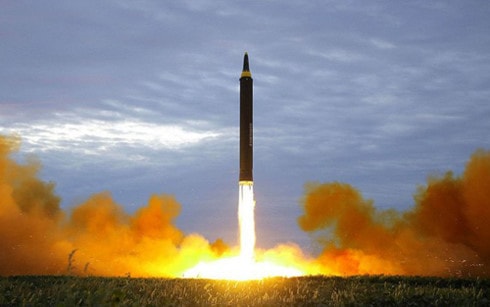 |
| North Korean missile leaves launch pad early morning on August 29. Photo: KCNA |
Professor Georgy Toloraya, a diplomat and expert on Asian studies, said that if the current situation in East Asia is not resolved, a number of countries will “live under the threat of a volcano waiting to erupt”.
“Everyone must understand that if North Korea launches an all-out attack, this military conflict will mean total and immediate destruction, because no one can deny the power of the US military,” Mr. Toloraya said.
“However, for the United States, attempting to resolve tensions on the Korean Peninsula through military means could lead to a retaliatory attack by North Korea, which could reduce South Korea to ashes,” he warned. Mr. Toloraya asserted that North Korea does not need nuclear weapons to do this.
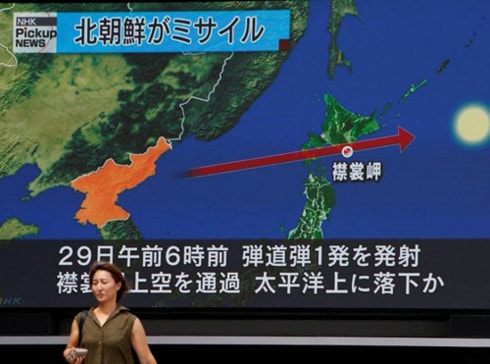 |
| Graphic of North Korea's missile test on August 29 on a large screen in Tokyo, Japan. Photo: Reuters |
North Korean artillery can reach Seoul, and the entire South Korean territory is not safe from North Korean missiles, even those that do not require nuclear warheads.
North Korean missiles and artillery shells are fully capable of hitting South Korean nuclear facilities, and there are about 30 such facilities near the South-North Korean border, Mr. Toloraya explained.
“Japan is also likely to suffer damage, as well as the US military bases there,” the expert added. Professor Toloraya stressed that only “diplomacy and negotiations” could resolve the crisis.
“All kinds of pressure on Pyongyang have been tried for many years, including sanctions. But no pressure has been able to change North Korea’s stance,” Mr. Toloraya said.
The expert also stressed that Moscow has long attached importance to diplomatic channels to ease tensions in the region through listening and dialogue with all parties.
“The problem is that the bloodiest wars are sometimes started by an accident or a mistake, this has happened in history. The higher the level of armament and the level of tension on the Korean peninsula, the greater the risk of an unexpected event that aggravates the situation,” Mr. Toloraya warned.
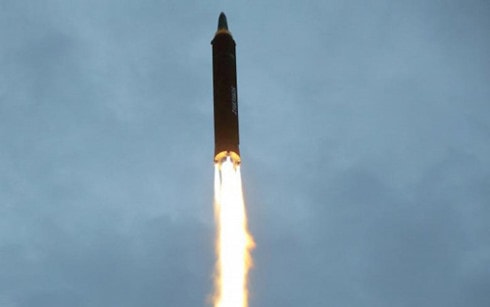 |
| North Korean missile leaves launch pad early morning on August 29. Photo: KCNA |
Another expert in the field of military history, Colonel General Leonid Ivashov, also expressed his opinion on the risk of such an “accidental” scenario. “There is always a danger, especially when unfinished missiles are used by North Korea,” he said.
These missiles could deviate from their intended course and, instead of reaching their intended destination, could destroy targets not intended by North Korea, leaving uninvolved countries to suffer the consequences of the conflict, Ivashov explained.
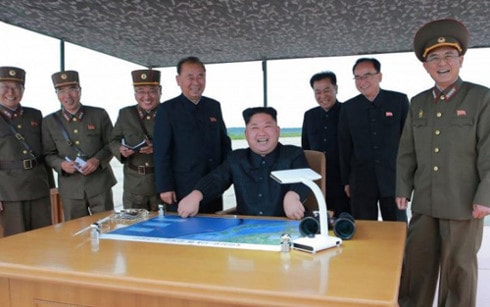 |
| North Korean leader Kim Jong-un and North Korean state and military officials watch a missile test on August 29. Photo: KCNA |
A military conflict on the Korean Peninsula would not only affect North Korea, South Korea and Japan, but could also cause damage to Russia and China. It is possible that countries not involved would not suffer military damage, but would still suffer damage in other aspects, Mr. Ivashov said.
“We need to deal with North Korea on the basis of understanding. What North Korea demands is a guarantee of its security, and no one is giving it that. It is a small country. It wants to protect its country, whether other countries like it or not. It does not like the US and South Korea conducting military exercises right next to its borders,” Mr. Ivashov said.
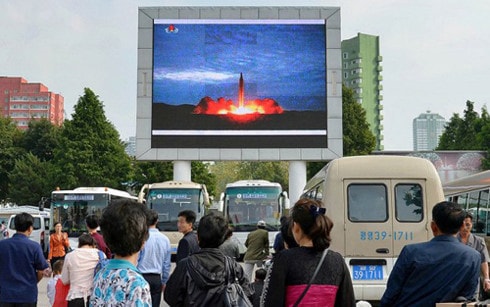 |
| North Koreans watch a video of the Hwasong-12 missile test on August 29 on a large screen outside Pyongyang Railway Station. Photo: Kyodo |
General Ivashov also said that “This problem can be solved if and only if the US really intends to solve the problem.” Previously, although Russia and China proposed a “double freeze” solution in which the US and South Korea stopped joint military exercises and North Korea stopped missile testing, Washington rejected this solution and announced that it would continue joint military exercises with South Korea./.
According to VOV
| RELATED NEWS |
|---|
